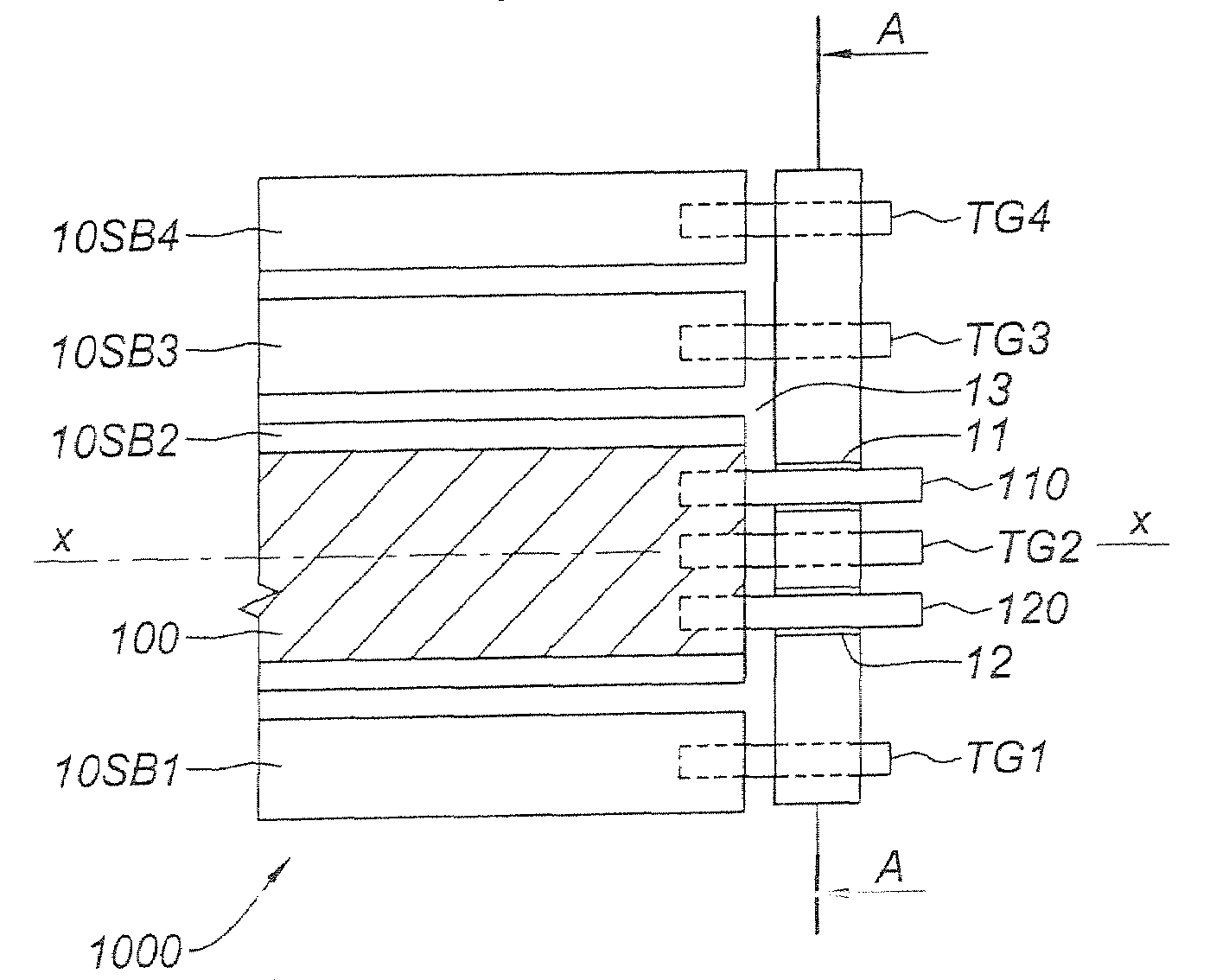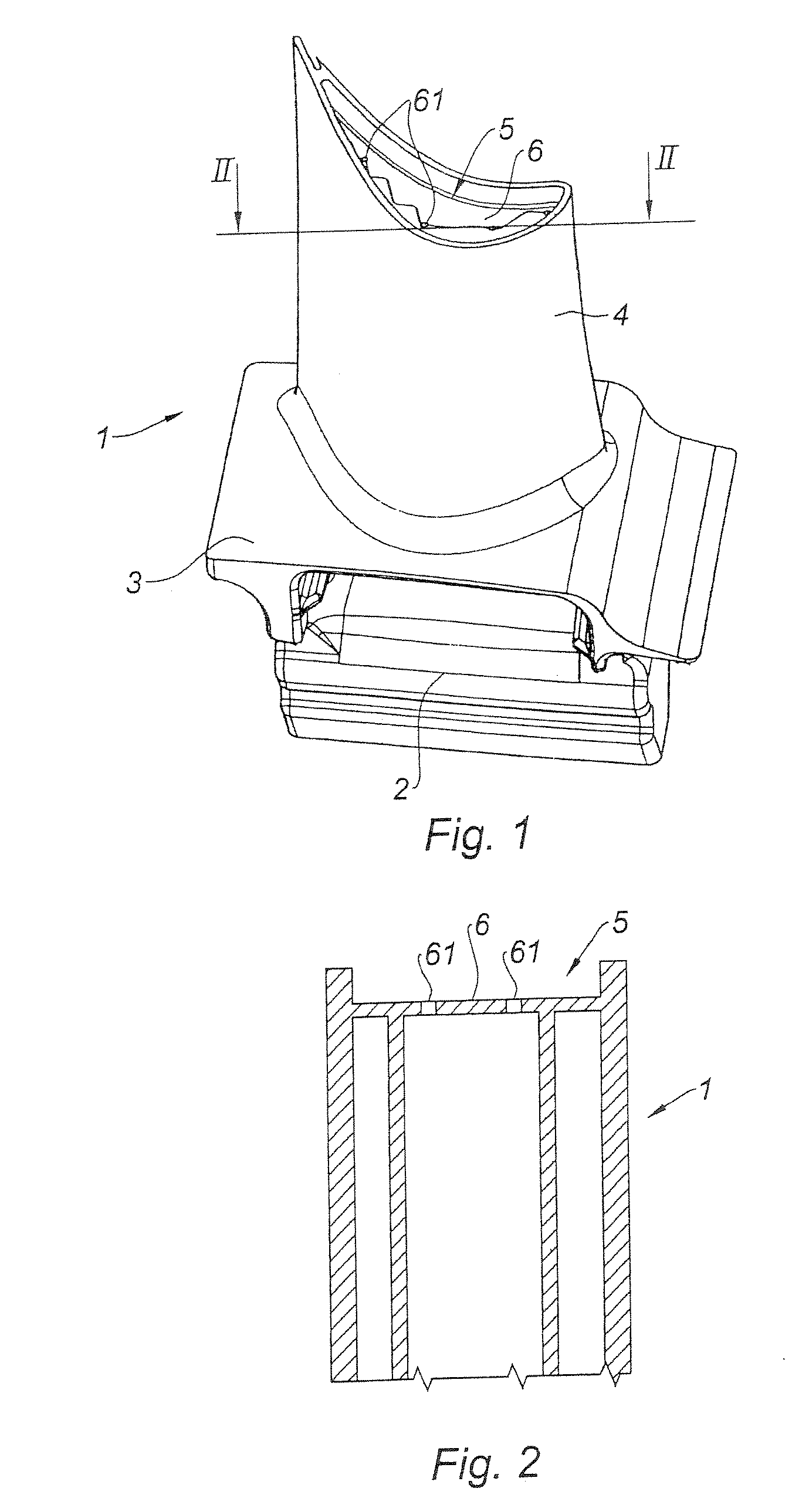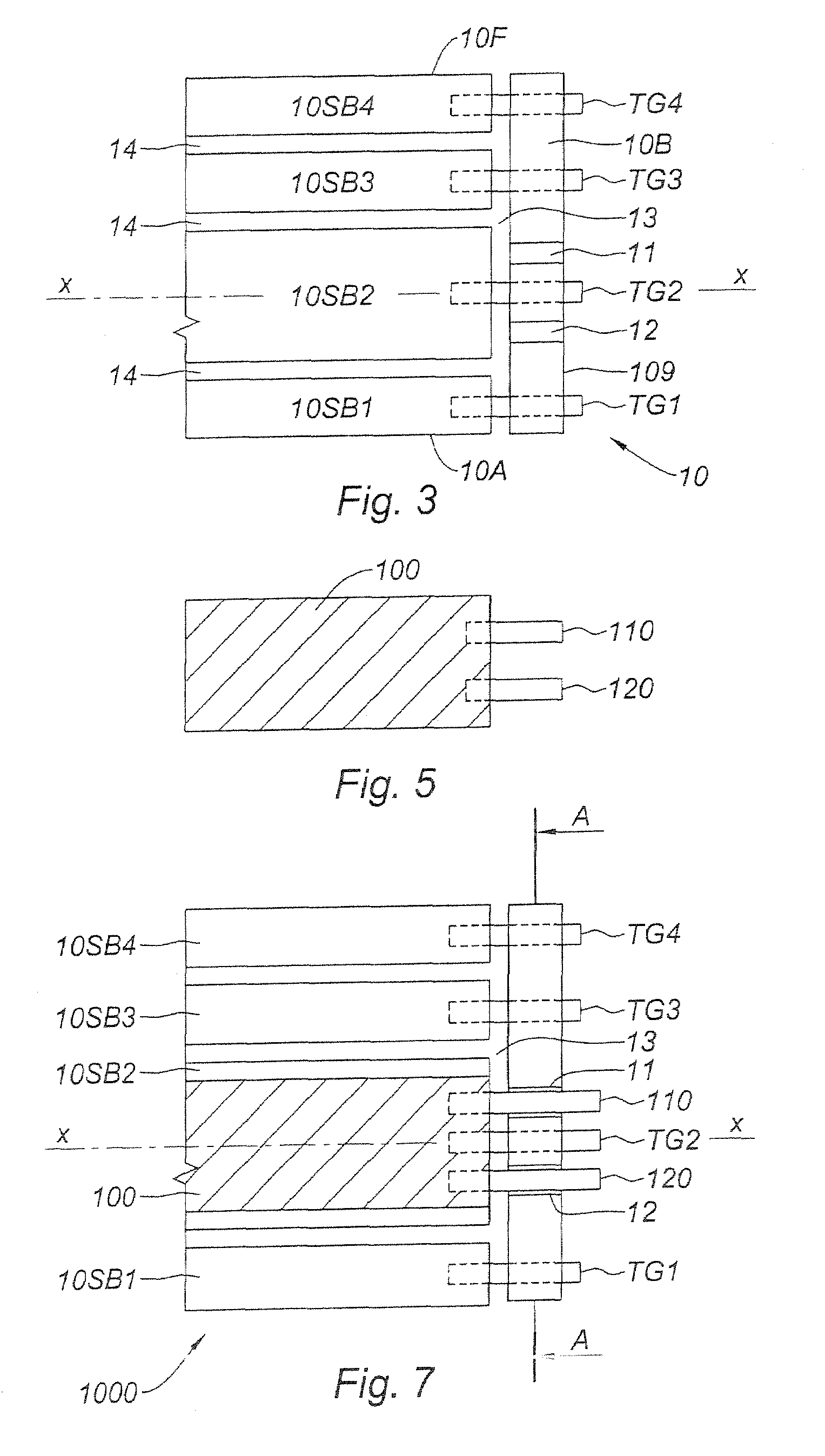Core for turbomachine blades
a turbomachine blade and core technology, applied in the field of turbomachine blades, can solve the problems of long operation and high cost, and achieve the effect of precise positioning of the assembled core elements
- Summary
- Abstract
- Description
- Claims
- Application Information
AI Technical Summary
Benefits of technology
Problems solved by technology
Method used
Image
Examples
Embodiment Construction
[0032]FIG. 3 shows, along the main axis XX of the blade, a portion of a main core which corresponds to the upper portion of the airfoil, the tip being to the right in the figure. The rest of the core corresponding to the portion of the blade with the root and the platform is not visible. This main core is, for example, the core on the pressure-face side of a multiple core. A multiple core allows hollow blades to be produced with multiple cavities separated by partitions, a cooling fluid circulating in said cavities. This cooling fluid may be air taken from the compressor, especially in a gas turbine engine. FIG. 4 shows an example of the overall profile of this main core.
[0033]This main core 10 here consists of a plurality of elements, separated from one another by spaces, constituting the walls of the cooling cavities after the metal has been cast. The schematic drawing of FIG. 3 shows an anterior edge 10A on the leading-edge side of the airfoil, a rear edge on the trailing-edge si...
PUM
 Login to View More
Login to View More Abstract
Description
Claims
Application Information
 Login to View More
Login to View More - R&D
- Intellectual Property
- Life Sciences
- Materials
- Tech Scout
- Unparalleled Data Quality
- Higher Quality Content
- 60% Fewer Hallucinations
Browse by: Latest US Patents, China's latest patents, Technical Efficacy Thesaurus, Application Domain, Technology Topic, Popular Technical Reports.
© 2025 PatSnap. All rights reserved.Legal|Privacy policy|Modern Slavery Act Transparency Statement|Sitemap|About US| Contact US: help@patsnap.com



